Introduction
Maintaining a healthy and balanced diet is essential for our overall health. Protein is a crucial component in fueling our bodies as it provides the necessary nutrients for growth, repair, and maintenance. This article will highlight the significance of a protein-rich diet and present a wide range of delicious food options that are packed with protein, suitable for every meal of the day.
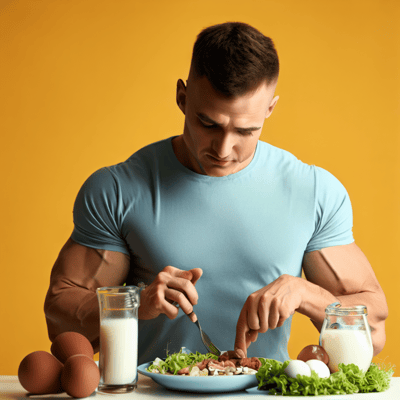

Importance of a Protein-Rich Diet
Protein is often hailed as the "building block" of life, and for good reason. It is an essential macronutrient that supports various bodily functions. Consuming an adequate amount of protein ensures proper growth and development, aids in muscle repair, assists in hormone production, boosts metabolism, and helps maintain a healthy immune system.
Protein plays a crucial role in our overall well-being as it is often referred to as the fundamental building block of life. This essential macronutrient supports a wide range of bodily functions, making it an integral part of our diet. Consuming an adequate amount of protein is essential for proper growth and development, as it aids in muscle repair, ensuring that our bodies stay strong and healthy. Furthermore, protein assists in hormone production, helping to regulate various processes within our bodies. Additionally, it boosts metabolism, allowing us to efficiently convert food into energy. Lastly, protein is vital for maintaining a robust immune system, which is essential for fighting off infections and diseases. Therefore, ensuring that we include enough protein in our diet is crucial for optimal health and well-being.
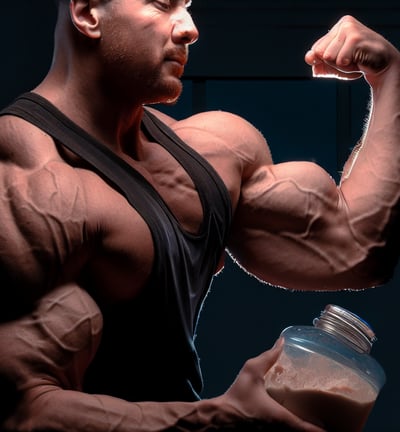

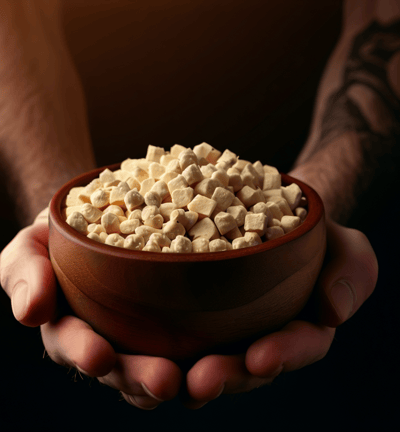

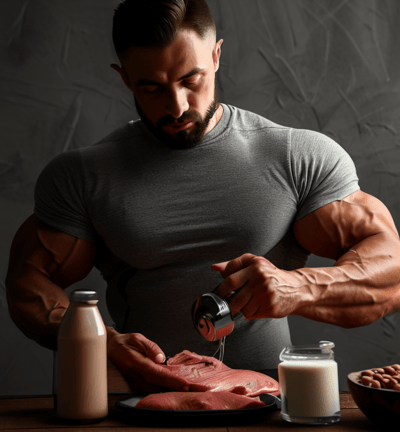

How Protein Fuels the Body
We have made quality our habit. It’s not something that we just strive for – we live by this principle every day.
Protein plays a crucial role as the main source of energy for the body, ranking only second to carbohydrates. Once protein is ingested, it is broken down into amino acids, which are subsequently absorbed and distributed throughout various parts of the body. These amino acids are utilized to construct and restore muscles, tissues, and organs. Moreover, protein has a vital role in regulating enzymes, hormones, and antibodies that are fundamental for the body to function optimally.
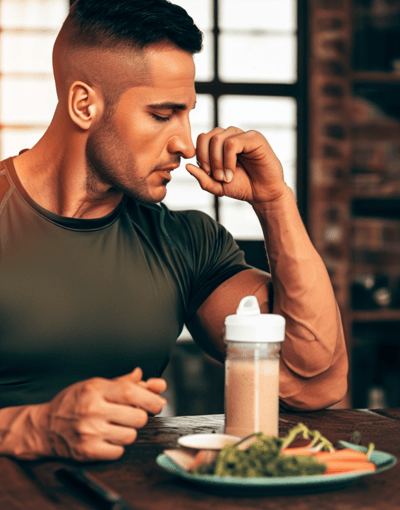

Summary
In summary, it is evident that including foods rich in protein in your daily diet plays a vital role in maintaining good health and overall well-being. Whether it is a hearty breakfast or a fulfilling dinner, there are countless options to choose from to meet your protein requirements. By incorporating a variety of protein sources into your meals, exploring diverse recipes and flavors, and considering both animal and plant-based options, you can create a balanced and protein-rich diet that not only provides energy to your body but also pleases your taste buds.


Frequently Asked Questions (FAQs)
What is the recommended daily protein intake?
The recommended daily protein intake varies based on factors such as age, sex, weight, and activity level. However, a general guideline is to consume 0.8 grams of protein per kilogram of body weight. Athletes or individuals aiming for muscle growth may require higher protein intake.
Can you consume too much protein?
While protein is essential for the body, excessive intake can strain the kidneys and liver. It's important to maintain a balanced diet and consult with a healthcare professional or registered dietitian for personalized protein recommendations.
Are there any risks associated with a high-protein diet?
A high-protein diet, especially if it lacks other essential nutrients, can lead to nutrient deficiencies. Additionally, it may increase the risk of certain medical conditions, such as kidney stones. It's important to focus on a balanced approach to nutrition.
Can I get enough protein on a vegetarian or vegan diet?
Absolutely! By incorporating a variety of plant-based protein sources such as legumes, tofu, tempeh, quinoa, and nuts, you can easily meet your protein needs on a vegetarian or vegan diet. It's important to consider the complementary combination of plant-based proteins to ensure you consume all essential amino acids.
How does protein benefit muscle building and weight loss?
Protein plays a key role in muscle repair, growth, and maintenance. Consuming an adequate amount of protein helps build lean muscle mass, which can increase metabolism and support weight loss efforts. Additionally, protein promotes satiety, helping to control appetite and reduce calorie intake.

